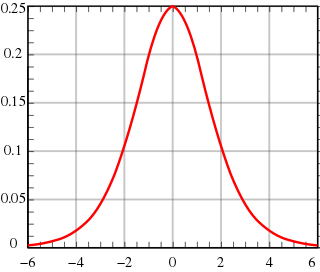Related Research Articles
A monopoly exists when a specific person or enterprise is the only supplier of a particular commodity. This contrasts with a monopsony which relates to a single entity's control of a market to purchase a good or service, and with oligopoly and duopoly which consists of a few sellers dominating a market. Monopolies are thus characterized by a lack of economic competition to produce the good or service, a lack of viable substitute goods, and the possibility of a high monopoly price well above the seller's marginal cost that leads to a high monopoly profit. The verb monopolise or monopolize refers to the process by which a company gains the ability to raise prices or exclude competitors. In economics, a monopoly is a single seller. In law, a monopoly is a business entity that has significant market power, that is, the power to charge overly high prices, which is associated with a decrease in social surplus. Although monopolies may be big businesses, size is not a characteristic of a monopoly. A small business may still have the power to raise prices in a small industry.
The 1973 oil crisis began in October 1973 when the members of the Organization of Arab Petroleum Exporting Countries proclaimed an oil embargo. The embargo was targeted at nations perceived as supporting Israel during the Yom Kippur War. The initial nations targeted were Canada, Japan, the Netherlands, the United Kingdom and the United States with the embargo also later extended to Portugal, Rhodesia and South Africa. By the end of the embargo in March 1974, the price of oil had risen nearly 300%, from US$3 per barrel to nearly $12 globally; US prices were significantly higher. The embargo caused an oil crisis, or "shock", with many short- and long-term effects on global politics and the global economy. It was later called the "first oil shock", followed by the 1979 oil crisis, termed the "second oil shock".
An energy crisis is any significant bottleneck in the supply of energy resources to an economy. In literature, it often refers to one of the energy sources used at a certain time and place, in particular, those that supply national electricity grids or those used as fuel in industrial development and population growth have led to a surge in the global demand for energy in recent years. In the 2000s p, this new demand — together with Middle East tension, the falling value of the US dollar, dwindling oil reserves, concerns over peak oil, and oil price speculation — triggered the 2000s energy crisis, which saw the price of oil reach an all-time high of $147.30 a barrel in 2008.

Alternative fuels, known as non-conventional and advanced fuels, are any materials or substances that can be used as fuels, other than conventional fuels like; fossil fuels, as well as nuclear materials such as uranium and thorium, as well as artificial radioisotope fuels that are made in nuclear reactors.

Liquid fuels are combustible or energy-generating molecules that can be harnessed to create mechanical energy, usually producing kinetic energy; they also must take the shape of their container. It is the fumes of liquid fuels that are flammable instead of the fluid. Most liquid fuels in widespread use are derived from fossil fuels; however, there are several types, such as hydrogen fuel, ethanol, and biodiesel, which are also categorized as a liquid fuel. Many liquid fuels play a primary role in transportation and the economy.
Methanol fuel is an alternative biofuel for internal combustion and other engines, either in combination with gasoline or independently. Methanol (CH3OH) is less expensive to produce sustainably than ethanol fuel, although it is generally more toxic and has lower energy density. For optimizing engine performance and fuel availability, however, a blend of ethanol, methanol and petroleum is likely to be preferable to using any of these alone. Methanol (a methyl group linked to a hydroxyl group) may be made from hydrocarbon or renewable resources, in particular natural gas and biomass respectively. It can also be synthesized from CO2 (carbon dioxide) and hydrogen. Methanol fuel is currently used by racing cars in many countries but has not seen widespread use otherwise.

For Peak brand motor oil, see Peak.

A natural gas vehicle (NGV) is also an alternative fuel vehicle that uses compressed natural gas (CNG) or liquefied natural gas (LNG). Natural gas vehicles should not be confused with autogas vehicles powered by liquefied petroleum gas (LPG), mainly propane, which is a fuel with a fundamentally different composition.
The methanol economy is a suggested future economy in which methanol and dimethyl ether replace fossil fuels as a means of energy storage, ground transportation fuel, and raw material for synthetic hydrocarbons and their products. It offers an alternative to the proposed hydrogen economy or ethanol economy.

A flexible-fuel vehicle (FFV) or dual-fuel vehicle is an alternative fuel vehicle with an internal combustion engine designed to run on more than one fuel, usually gasoline blended with either ethanol or methanol fuel, and both fuels are stored in the same common tank. Modern flex-fuel engines are capable of burning any proportion of the resulting blend in the combustion chamber as fuel injection and spark timing are adjusted automatically according to the actual blend detected by a fuel composition sensor. Flex-fuel vehicles are distinguished from bi-fuel vehicles, where two fuels are stored in separate tanks and the engine runs on one fuel at a time, for example, compressed natural gas (CNG), liquefied petroleum gas (LPG), or hydrogen.

The energy industry is the totality of all of the industries involved in the production and sale of energy, including fuel extraction, manufacturing, refining and distribution. Modern society consumes large amounts of fuel, and the energy industry is a crucial part of the infrastructure and maintenance of society in almost all countries.

The energy policy of the United States is determined by federal, state, and local entities in the United States, which address issues of energy production, distribution, and consumption, such as building codes and gas mileage standards. Energy policy may include legislation, international treaties, subsidies and incentives to investment, guidelines for energy conservation, taxation and other public policy techniques.
The United States produces mainly biodiesel and ethanol fuel, which uses corn as the main feedstock. The US is the world's largest producer of ethanol, having produced nearly 16 billion gallons in 2017 alone. The United States, together with Brazil accounted for 85 percent of all ethanol production, with total world production of 27.05 billion gallons. Biodiesel is commercially available in most oilseed-producing states. As of 2005, it was somewhat more expensive than fossil diesel, though it is still commonly produced in relatively small quantities.

An alternative fuel vehicle is a motor vehicle that runs on alternative fuel, an energy other than traditional petroleum fuels ; and also refers to any technology of powering an engine that does not involve solely petroleum. Because of a combination of factors, such as environmental concerns, high oil prices and the potential for peak oil, development of cleaner alternative fuels and advanced power systems for vehicles has become a high priority for many governments and vehicle manufacturers around the world.

US energy independence is the idea of eliminating the need for the United States to import petroleum and other foreign sources of energy. Energy independence is espoused by those who want to leave the US unaffected by global energy supply disruptions, and to restrict reliance upon politically unstable states for its energy security. Energy independence is highly concerned with oil, the source of the country's principal transport fuels.

Energy security is the association between national security and the availability of natural resources for energy consumption. Access to (relatively) cheap energy has become essential to the functioning of modern economies. However, the uneven distribution of energy supplies among countries has led to significant vulnerabilities. International energy relations have contributed to the globalization of the world leading to energy security and energy vulnerability at the same time.

The mitigation of peak oil is the attempt to delay the date and minimize the social and economic effects of peak oil by reducing the consumption of and reliance on petroleum. By reducing petroleum consumption, mitigation efforts seek to favorably change the shape of the Hubbert curve, which is the graph of real oil production over time predicted by Hubbert peak theory. The peak of this curve is known as peak oil, and by changing the shape of the curve, the timing of the peak in oil production is affected. An analysis by the author of the Hirsch report showed that while the shape of the oil production curve can be affected by mitigation efforts, mitigation efforts are also affected by the shape of Hubbert curve.

Energy Victory: Winning the War on Terror by Breaking Free of Oil is a 2007 book by Robert Zubrin. Zubrin's central argument is that the decisive front in the War on Terror is America's struggle for energy independence. He outlines the manner in which radical Islam has been financed by oil revenues, the technological feasibility of ethanol-fueled vehicles as well as the economic and agricultural imperatives for ethanol production, and the environmental implications of his plan.

Methanex Corporation is a Canadian company that supplies, distributes and markets methanol worldwide.
The Open Fuel Standard Coalition is a bipartisan group in the United States actively working for passage of H.R. 1687, the "Open Fuel Standard Act of 2011." The OFS Coalition views this legislation as the solution to the current energy crisis by the implementing of alternative energy sources into our fuel transportation market sector, thereby breaking our dependence on foreign oil. Specifically, by implementing H.R. 1687, the Open Fuel Standard Act of 2011 all vehicles sold in the US will have to either operate on mixed fuels, containing 85 percent ethanol, methanol, biodiesel, or any other alternative energy source.
References
- ↑ http://www.fuelfreedom.org/who-we-are/executive-leadership/
- ↑ http://www.fuelfreedom.org/tag/eyal-aronoff/
- ↑ Cook, B.W. "The Crowd: Big names fighting fuel dependence", Daily Pilot, October 24, 2012
- ↑ http://www.fuelfreedom.org/angry-rising-gas-prices-something/
- ↑ "Governor Bill Richardson Joins Fuel Freedom Foundation's Board of Advisors" [ permanent dead link ], The Wall Street Journal , April 22, 2013
- ↑ "Fuel Freedom Foundation Launches Campaign to End America's Oil Addiction" MarketWatch, October 22, 2012 [ dead link ]
- ↑ "C-SPAN Biographical History", C-SPAN
- ↑ "John Hofmeister Joins Fuel Freedom Foundation", "Hybrid Cars", April 5, 2013
- ↑ "Institute for the Analysis of Global Security", Institute for the Analysis of Global Security
- ↑ "Ending Our Oil Addiction: Yossie Hollander at TEDxChapmanU", TEDx, July 5, 2012
- ↑ "Our Real Energy Problem, and How We Solve It", CNBC, April 4, 2013
- ↑ "Difference Engine: Competition At The Pump", The Economist, August 20, 2012
- ↑ Tucker, William "Can Two Software Geeks Save Us From Foreign Oil?", "Real Clear Energy", November 19, 2012